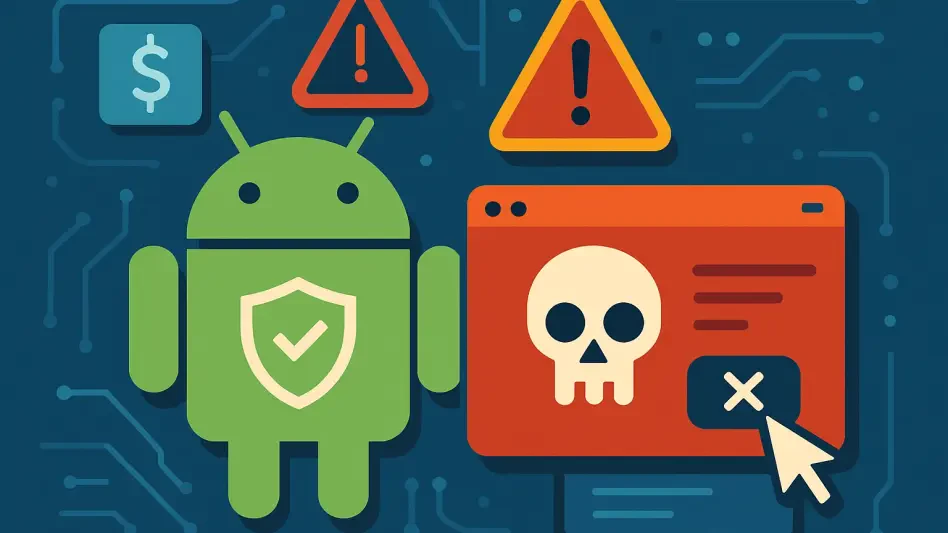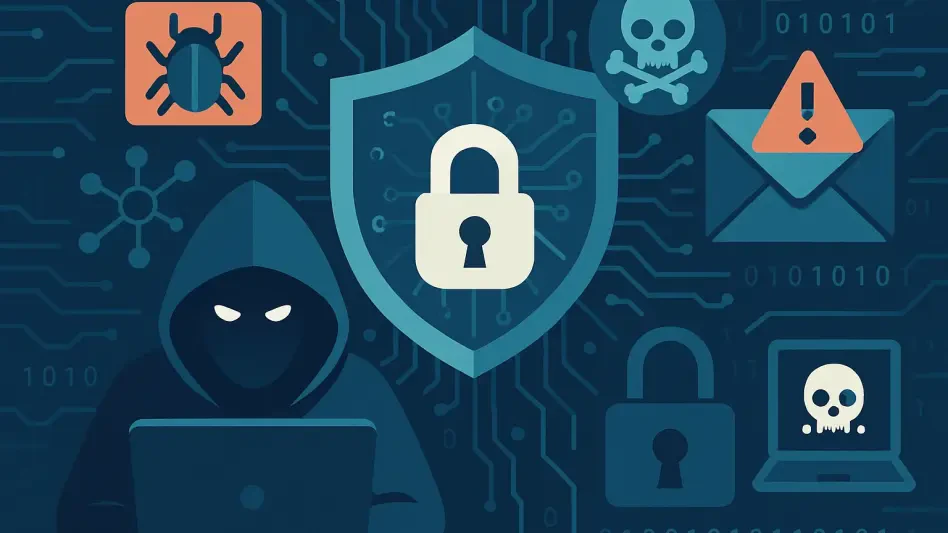In November 2024, the City of Athens encountered a major financial dilemma when approximately $722,000 was siphoned off through a sophisticated cyber scam. This particular incident, which involved email fraud directed at city officials, has kindled concerns regarding the overall cybersecurity measures within the municipality, the safeguards available, and the broader, often-overlooked impacts of cyber fraud on smaller communities. The ongoing probes and recovery attempts underscore the city’s unwavering drive to protect public assets and reestablish trust with the community.
The Cyber Scam Unfolds
The Deceptive Email
Mid-November 2024 saw cybercriminals craft a meticulous plot by impersonating the reputable Pepper Construction Company of Ohio LLC, the entity tasked with the construction of Athens’ new firehouse. They sent meticulously crafted fraudulent emails to city officials, brazenly requesting an electronic transfer of $721,976.26. This well-disguised email came with an authorization form seemingly legitimate at first glance but laden with forged credentials and incorrect contact information. These details cleverly directed the payment to an account under Republic Bank and Trust Company in Louisville, Kentucky.
The compelling authenticity of these communications nearly cemented the scam, sparking no immediate suspicions from the officials tasked with processing such invoices. The format, tone, and fraudulent credentials persuaded even the seasoned employees to proceed with the transaction without suspecting foul play. However, this missed red flag resulted in a substantial blow to the city’s finances, jeopardizing not just a specific project but the broader financial security perceived within Athens’ governance.
Discovery and Immediate Response
Fortunately, the scam’s perpetuation was short-lived as an alert employee from the City’s Auditor’s Office swiftly identified discrepancies in the authorization form shortly after the payment was processed. This astute observation led to immediate notifications being sent to the Athens Police Department, which in turn alerted federal authorities. The city’s prompt reaction underscored their determination to recover the funds and pinpoint the perpetrators.
On December 4, 2024, a civil lawsuit was initiated against the unidentified fraudsters in the Athens County Court of Common Pleas. This lawsuit sought an injunction intended to freeze the fraudulent account, thereby preventing the swindlers from exploiting the illicitly acquired funds further. The proactive legal measures signified Athens’ aggressive stance in mitigating the financial loss and exacting accountability from the cybercriminals who masterminded this heist.
Legal Actions and Recovery Efforts
The Civil Lawsuit
The civil lawsuit instituted on December 4 meticulously detailed the chronology of events, tracing back to the deceitful email received on November 14, 2024. This complaint, acting as a comprehensive narrative, portrayed the ordeal city officials had to endure. It painted a clear picture of the emotional and financial toll exacted by the scam. Andrew Chiki, an involved city official, eloquently expressed the collective sentiments, categorizing the affair as “distressing, stressful, and profoundly infuriating.”
Beyond monetary restitution, this legal salvo aimed to cement accountability, exemplifying an unyielding stance against cyber fraud. By spelling out every step of the scam’s execution, the lawsuit poignantly underscored the vulnerabilities even well-established city administrations could harbor. The call for an injunction illustrated a strategic move to halt any further dispersal of the defrauded sum, laying groundwork not just for recovery but also for preventing potential future mishaps.
Partial Recovery and Complications
The legal pursuit bore some fruit. Upon identification of a fraudulent account, Athens managed to retrieve a significant portion of the funds — $349,522.10. However, not without complications. In a twist of fate, the bank that managed the deceptive account, Republic Bank, filed a motion on January 10 seeking judicial guidance on distributing the funds. The intricacy arose when it was discovered that Regency Center LP, another victim, had deposited a considerable amount into the same fraudulent account.
This dual claimant scenario added layers of complexity to the already challenging restitution process. Determining the rightful recipients of the recovered funds required meticulous adjudication, given the overlapping claims. The involvement of multiple victims exposed further facets of the scam and raised pivotal questions about bank roles, accountability, and the wider impact of such cyber fraud schemes on varying entities.
Community Reaction and Accountability
Public Outcry and Concerns
Understandably, the city’s residents reacted with palpable shock and confusion, swiftly voicing their discontent and demanding accountability during the City Council meeting held on December 16. Community members like Melina Miller and Megan Weber were particularly vocal, questioning the robustness of the city’s financial safeguards and clamoring for transparency. The incident brought to light the glaring vulnerabilities within Athens’ financial systems, particularly worrying given the approval of recent levies aimed at fortifying various community services.
This public outcry underscored the critical need for municipal entities to furnish transparent, resilient, and effective mechanisms capable of thwarting similar menaces in the future. The community’s reaction, steeped in legitimate concern, pivoted the narrative towards safeguarding not only financial transactions but also reinstating trust in local governance. The collective sentiment signaled an unequivocal demand for enhanced vigilance and stronger safeguard measures.
Restoring Trust
Recognizing the necessity to shore up community trust and avert recurrences, city authorities have proactively embarked on several corrective measures. Enhanced training on phishing scams and email security for city employees has now been mandated, arming them with the requisite tools and knowledge to identify and curtail potential cyber threats effectively. The incorporation of fraud, waste, and abuse training has also found priority status in the city’s immediate action plans.
Furthermore, an external audit, steered by an independent body, will rigorously assess Athens’ current cybersecurity practices. This audit aims to uncover existing vulnerabilities and recommend actionable pathways for improvements. The City Auditor’s Office is concurrently launching a comprehensive review of financial controls and invoicing processes. These multi-layered initiatives collectively aim to buttress the city’s defenses, ensuring such a breach does not repeat in the future.
Strengthening Cybersecurity Measures
Enhanced Training and Awareness
In the aftermath of the cyber scam, Athens is placing significant emphasis on bolstering its cybersecurity infrastructure. Enhanced training and awareness programs are at the forefront of this revamped strategy. By targeting city employees, these training sessions aim to substantially elevate their proficiency in identifying, responding, and neutralizing potential cyber threats, particularly those encapsulated in phishing scams.
This newfound focus on continuous education reiterates Athens’ commitment to staying ahead in the cyber landscape. Empowering employees with the right knowledge creates a robust first line of defense against increasingly sophisticated cyber adversaries. The city’s plans are comprehensive, involving periodic refresher courses and simulated attack scenarios to consistently maintain high alertness levels and operational readiness among its workforce.
External Audits and Reviews
Moreover, Athens has deemed it essential to subject its cybersecurity practices to rigorous external audits. By enlisting an independent body to meticulously evaluate the city’s existing frameworks, policies, and operational protocols, Athens seeks an unbiased assessment of its security posture. The aim is to identify latent vulnerabilities that might have gone unnoticed internally and implement tailored recommendations to fortify defenses.
In tandem, the City Auditor’s Office is undertaking a granular review of financial controls and invoicing processes. This internal scrutiny seeks to rectify procedural weaknesses, ensuring robust financial workflows less susceptible to infiltration by cybercriminals. The combined efforts of external audits and internal reviews illustrate a multi-pronged strategy to preempt future cyber threats and safeguard municipal resources comprehensively.
The Role of Cyber Insurance
Mitigating Financial Loss
To cushion the city against the immediate financial brunt of such cyber scams, Athens has leveraged its cyber insurance. While specifics of the policy’s coverage remain contingent on ongoing investigations and delineated terms, this insurance offers a crucial financial safeguard. It potentially aids in mitigating the financial abyss that the scam created, acting as a buffer while more concrete recovery measures continuously unfold.
The cyber insurance framework underscores the importance of having a financial safety net in place, particularly in an era where cyber threats are proliferating at unprecedented rates. Effective policy utilization affords the city a degree of reprieve, enabling it to navigate through the immediate repercussions and refocus on long-term cybersecurity enhancements.
Policy Review and Adjustments
In the wake of the incident, Athens is thoroughly reviewing its existing cyber insurance policy. This reevaluation extends beyond the superficial parameters, delving into an in-depth analysis of coverage limits, terms, conditions, and exclusions. The aim is to ascertain whether the policy offers substantial protection commensurate with the evolving threat landscape or if modifications are necessitated to better shield the city against future cyber risks.
This proactive review signifies a commitment to not merely relying on a retributive safety net but optimizing it to align with best practices in cybersecurity insurance. By making such adjustments, Athens strives to enhance its resilience against potential cyber threats, equipping itself with optimal financial defenses in addition to fortified operational protocols.
Lessons Learned and Future Preparedness
Acknowledging Vulnerabilities
In retrospection, officials like Andrew Chiki have underscored the omnipresent nature of such cyber frauds, challenging the often-comfortable assumption that one’s institution—be it a formidable local government—would remain immune from them. Chiki’s candid admissions bring to light the perilous complacency that any entity, regardless of its stature, can harbor inadvertently. His communications urge communal awareness and draw attention to the reality that sophisticated cyber scams hold no prejudices—they target any vulnerability.
Acknowledging these vulnerabilities constitutes a salient first step towards robust defense mechanisms. It highlights the necessity for continuous vigilance, systemic updates, and fostering a culture of cybersecurity across all hierarchical levels within the municipal framework. This awareness caters to an evolved understanding that cybersecurity is not a peripheral concern but an integral, ongoing institutional commitment.
Building Resilience
In November 2024, the City of Athens faced a serious financial crisis when about $722,000 was stolen through an elaborate cyber scam. This incident revolved around email fraud targeting city officials and has sparked significant concerns about the municipality’s cybersecurity measures, the existing protective protocols, and the far-reaching consequences of cyber fraud on smaller communities. The sophisticated nature of the attack has highlighted potential vulnerabilities in the city’s digital defenses and questioned the effectiveness of its current safeguards.
The repercussions of this cybercrime are considerable, impacting both the city’s finances and the public’s trust in local government. Such breaches not only result in immediate financial loss but also necessitate comprehensive reviews of security practices and protocols. The ongoing investigations and efforts to recover the stolen funds demonstrate the city’s commitment to defending public assets and restoring the community’s confidence in their leaders. It is a stark reminder of the increasingly digital threats that municipalities face and the imperative to bolster cybersecurity strategies continually.







